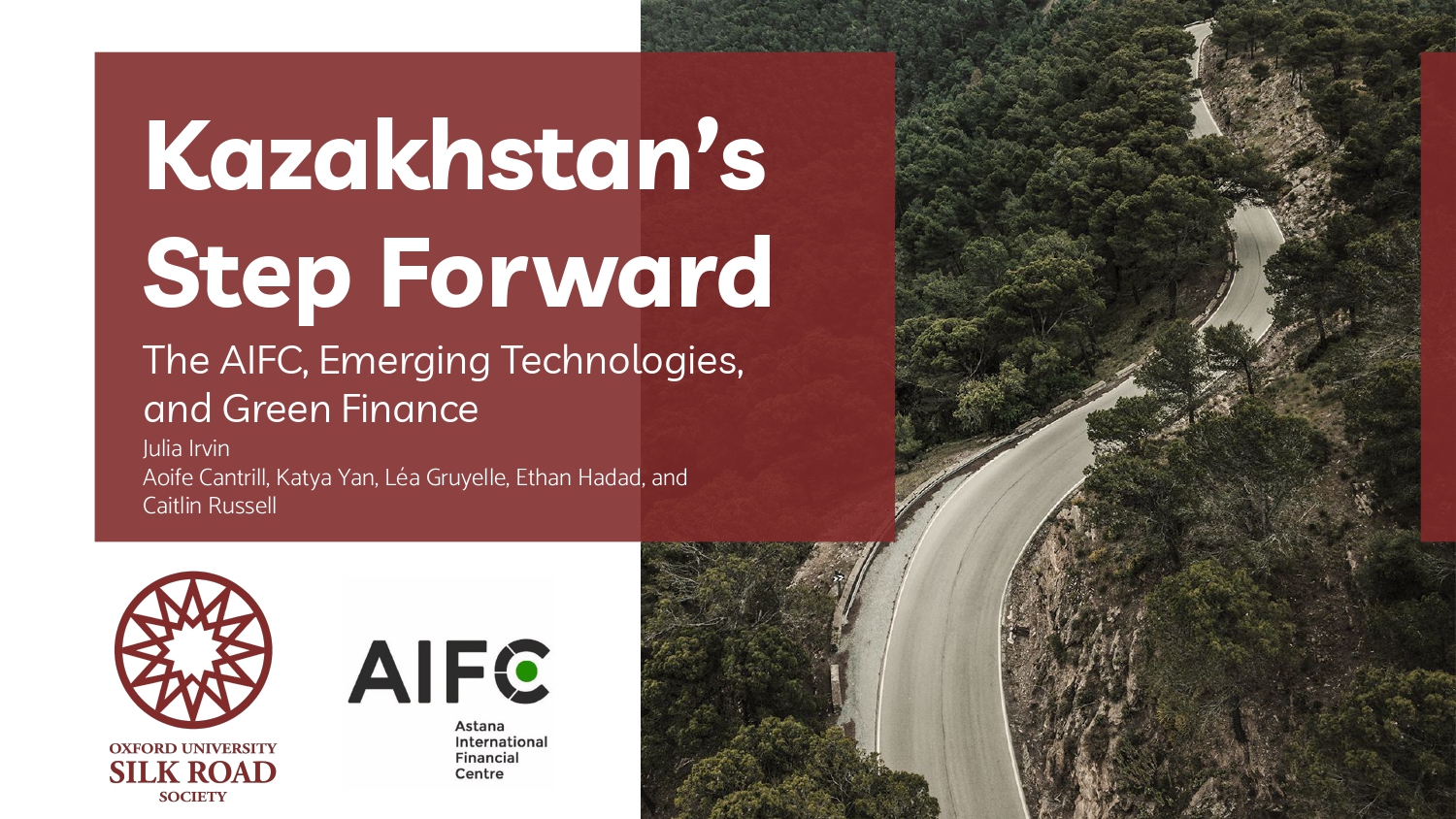Kazakhstan report presented at Oxford University

LONDON, 9 July 2021 – The Oxford University Silk Road Society (Society) student think tank, in collaboration with the Astana International Financial Centre (AIFC) and with the support of the Embassy of Kazakhstan in the UK, presented a policy report “Kazakhstan’s Step Forward: the AIFC, Green Finance and Emerging Technologies” during a special online meeting.
Established in 2017 at the UK’s oldest university, the Society is the first university association exploring the Silk Road in its modern and historical contexts. Peter Frankopan, prominent British historian, professor, Director of the Oxford Centre for Byzantine Research, and author of The Silk Roads: A New History of the World bestseller is the senior member of the Society.
In the midst of the pandemic in 2020, the Society started a think tank to bring together young and talented scientists. Its main purpose is to assist policymakers and governmental bodies of the countries along the Belt and Road Initiative in promoting equity and sustainability as its integral components. Hinrich Foundation, Fidelity International – an investment management services company, Green BRI Center research institute and the Pakistan-China Institute are among the new think tank’s partners.
In 2021, the Society and the Embassy of Kazakhstan in the UK established a cooperation, which resulted in the publication of the report. The report provides expert opinions of Oxford analysts, including on the establishment of mutually beneficial tripartite relations between Kazakhstan, the UK and China.
Oxford students presented research papers and gave practical recommendations on the most relevant topics, including on Chinese investment, greening agro-industry, hydro-policy, green bond market, sustainable development, blockchain and cryptomining, fight against corruption, and the implementation of the Belt and Road Initiative.
The case study titled “Chinese investment, greening agro-industry, and hydro-policy in Kazakhstan” outlined water shortage and desertification in the agro-industrial sector, which accounts for about 69.1 percent of annual water consumption in Kazakhstan, as the main challenges.
The paper particularly highlighted the need to prioritise environmental protection and the issues farmers in Kazakhstan are facing, while also maintaining the volume of long-term investments. Further Kazakhstan-China cooperation on transboundary rivers and Lake Balkhash was also named as an important measure.
The author of the “Kazakhstan’s green bond market” paper noted that high funding rate and high risks of investing in green bonds make them less financially attractive to investors. The author proposed to implement the environmental, social and governance investment mandate for Kazakhstan’s sovereign, pension and insurance funds. The speaker also noted the importance of developing bank participation in green bonds issuance.
The research on “Sustainability of blockchain technology and cryptomining at the centre of the Silk Road” stated that since Kazakhstan seeks to use financial technologies such as blockchain at the centre of its innovative approach to development, management and finance, it is important to distinguish between investment in blockchain technology and investment in cryptomining.
The “Corruption, blockchain and the Belt and Road Initiative in Kazakhstan” case study noted that blockchain technology is promising in the fight against corruption and increasing transparency. The OECD recommendations on blockchain can serve as a good starting point in this sphere. At the same time, any decision on cryptocurrency should take into account the potential impact on the environment.
The event concluded with a case study on “Investment in metallurgy and mining in Kazakhstan”. The speaker noted that KAZ Minerals is an example of a tripartite UK-Kazakhstan-China partnership, since the company is based in the UK, produces in Kazakhstan and is able to meet China’s demand for copper.
One of the proposals was to reframe environmental sustainability within the framework of a circular economy and create a tighter environmental taxonomy to encourage environmentally friendly investment in Kazakhstan. This will lead to state-owned companies promoting more environmentally friendly production processes, which will increase the likelihood of receiving foreign investment.